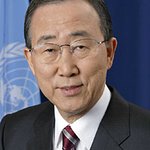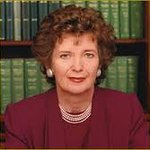Marking the International Day against Nuclear Tests, United Nations Secretary-General Ban Ki-moon has called for a renewed global commitment to a world free of nuclear weapons and nuclear tests.
“On this International Day against Nuclear tests, let us all take a fresh look at survivors’ stories. Listen to their words and imagine the effects of these detonations as if they were experienced by each of us,” Mr. Ban said in his message.
He recalled meeting with courageous survivors of nuclear weapons and nuclear tests in Hiroshima, Nagasaki and Semipalatinsk. Their “resolve and dedication should continue to guide our work for a world without nuclear weapons,” he said.
In December 2009, the UN General Assembly declared 29 August the International Day against Nuclear Tests by unanimously adopting resolution 64/35. The resolution calls for increasing awareness and education “about the effects of nuclear-weapon-test explosions or any other nuclear explosions and the need for their cessation as one of the means of achieving the goal of a nuclear-weapon-free world.”
The resolution was initiated by Kazakhstan, which had closed its nuclear test site near Semipalatinsk on this day – 29 August – in 2009. Moreover, on the same date in 1949, the Soviet Union conducted its first nuclear test, followed by another 455 nuclear tests over succeeding decades, with a terrible effect on the local population and environment.
“These tests and the hundreds more that followed in other countries became hallmarks of a nuclear arms race, in which human survival depended on the doctrine of mutually assured destruction, known by its fitting acronym, MAD,” Mr. Ban said.
The Secretary-General appealed to citizens of those States that have not yet ratified the Comprehensive Nuclear-Test-Ban Treaty (CTBT), especially the eight remaining Annex 2 States whose ratification is required for the Treaty’s entry into force: China, the Democratic People’s Republic of Korea, Egypt, India, Iran, Israel, Pakistan and the United States.
Since nuclear weapons testing began in the mid-twentieth century, with the first test on 16 July 1945, nearly 2,000 have taken place. The Day is meant to galvanize the UN, Member States, and non-governmental organizations to inform and advocate the necessity of banning such tests.
“Together, let us demand an end to all nuclear tests, get on with the unfinished business of achieving a world free of nuclear weapons and usher in a safer and more prosperous future,” Mr. Ban said.






